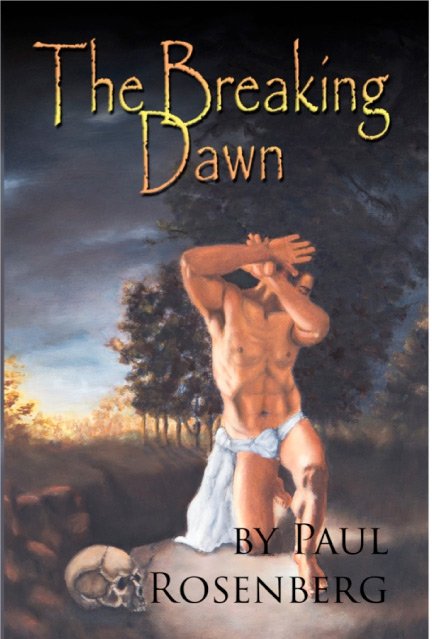I found the Mueller Sanitarium for the Chronically Ill a few blocks from a place I worked back in the 1980s. It sits almost by itself, at least if you don’t count parking lots, and only a block or so from a rapid transit train. It’s tucked in between a middle class neighborhood and a small industrial park. The building itself is an old brick six-flat, apparently in good condition, and the sanitarium sign in front is almost discrete. It’s easy to see as you approach the building but was clearly not designed to attract attention.
I walked up the stairs with some trepidation. While I have experience with lots of unusual things, deformed people are not my specialty, and it seems that most of us are instinctively turned away from such sights. I honestly don’t think any kind of hatred is involved, or even devaluation per se; it’s just that those things strike us as very wrong. Humans – in our deep instincts it seems – are supposed to be healthy, attractive creatures.
But I had prepared myself along the way, and I was confident that I was ready. I rang the bell and within a few seconds Esther appeared. She welcomed me in and guided me to their “front room,” where I couldn’t help seeing a large portrait hanging, painted fairly well in oils.
“That’s the man who founded this place,” she said. “Chester Cruz. He died when I was very young, so I’m not sure if I really remember him or not, but we all owe him the effective portions of our lives.”
Just then, two old men walked in. They seemed half afraid of my reaction and half happy to meet me.
“You wrote the article on tortured children?” one of them asked.
The man had a badly withered right arm and a twisted torso. He walked with difficulty.
“Yes,” I said, “I did.”
He extended his left hand to me and I shook it.
“Thank you,” he added.
“It was my pleasure, sir. I felt I needed to. Those children deserved to be defended.”
Then I looked at the other man. I had to stop myself from gasping, not because of how he looked, but because I thought I knew him. I have, however, learned not to trust my poker face too well and so I spoke quickly.
“I think I know you… or rather… I used to see you.”
He smiled. Even through a badly damaged and poorly repaired face (this man had obviously been through some horrible accident), I could tell. And by this time, I was no longer concerned about my expressions.
“Back in the 1990s, did you used to walk down the alley between Wabash and State in the very early morning, going north from 11th Street?”
He smiled again. “Yes I did,” he said. “I used to work at the police headquarters there, from 11 at night till four in the morning. They tucked me away in the repair garage, but they kept me on till retirement.”
I had seen this man when I lived on 9th Street and parked on State. When I got up very early in the morning, as I did occasionally, he would appear in the alley like a character in an old film noir movie: his collar pulled up and a fedora pulled down over his face, sticking to the shadows underneath the elevated train tracks. I’ve been tempted several times to write a story about him or at least to include him in a novel. It just never worked out.
I shortly met four other residents, and I’ll get to their commercial efforts next time, but first I want to tell you about the founder of the sanitarium, Chester Cruz.
Cruz was a hunchbacked lawyer. In most cases of this condition (kyphosis), the curvature of the spine doesn’t change over time. But in a small percentage, one of whom was Chester, it gets worse, to the point where it’s almost completely debilitating.
As a young lawyer, Chester looked like he had a bad back or some type of injury. He got tailored suits and covered it up fairly well. And since he was very bright and very motivated, he did quite well in the practice of law.
As time passed, however, Chester’s condition became much worse, to the point where his appearance was a distraction in court. The firm moved him to office work (at the same rate of pay), but Chester’s days were clearly numbered. He could barely stand with his head up after a while. And so, while he still could, he gathered his money, pulled some political favors, and created the sanitarium, securing a permanent tax exemption for it.
Eventually he left the law firm, which, to their immense credit, provided the sanitarium with annual donations through the rest of Chester’s lifetime and several years beyond. The donations stopped only when the firm was purchased by a mega-firm and reorganized.
Chester lived at the sanitarium for the last 14 years of his life, brought people who “needed to be there,” arranged for psychologists to visit regularly (he forced them to wear lab coats to maintain the appearance of a clinic), and created the model of voluntary cooperation that they still maintain.
More to Come
Next time I’ll tell you about their dealings with the outside world, and especially their current difficulties.
* * * * *

A book that generates comments like these, from actual readers, might be worth your time:
I just finished reading The Breaking Dawn and found it to be one of the most thought-provoking, amazing books I have ever read… It will be hard to read another book now that I've read this book… I want everyone to read it.
Such a tour de force, so many ideas. And I am amazed at the courage to write such a book, that challenges so many people's conceptions.
There were so many points where it was hard to read, I was so choked up.
Holy moly! I was familiar with most of the themes presented in A Lodging of Wayfaring Men, but I am still trying to wrap my head around the concepts you presented at the end of this one.
Get it at Amazon ($18.95) or on Kindle: ($5.99)
* * * * *
Paul Rosenberg
www.freemansperspective.com
Thanks for continuing...
😄😇😄

Downvoting a post can decrease pending rewards and make it less visible. Common reasons:
Submit